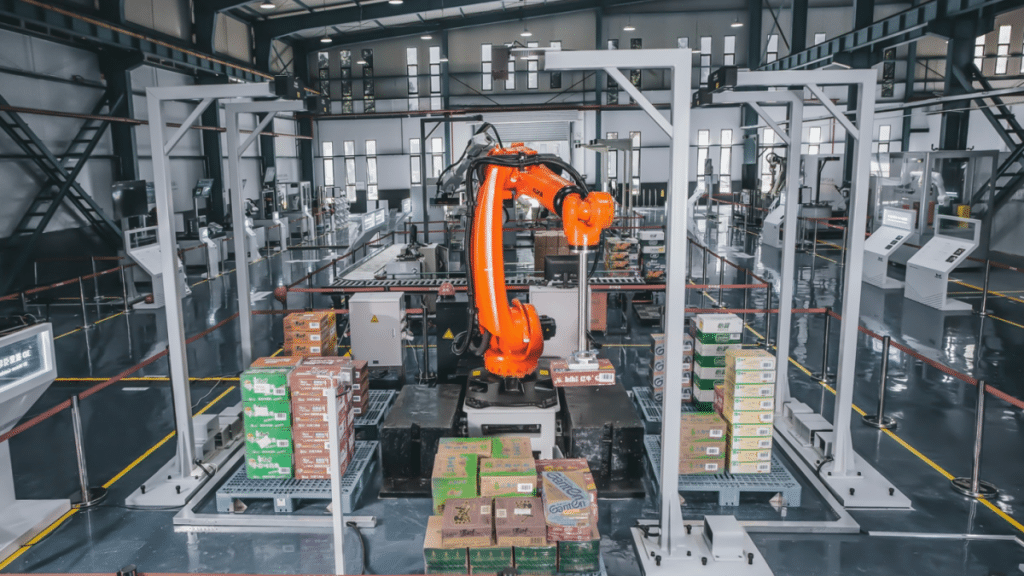Effective equipment management in today’s competitive manufacturing landscape is vital to ensure smooth operations, increase productivity, and cut costs. Unfortunately, manufacturers face numerous hurdles that range from unscheduled equipment downtime and increased maintenance expenses to energy inefficiency issues and waste. Any one of these problems threatens production goals or adversely affects the financial viability of companies.
For instance, ensuring that your equipment is always running smoothly requires reliable power sources. Deka forklift batteries provide consistent and efficient energy, helping prevent downtime while decreasing maintenance frequency and costs.
Common Challenges in Equipment Management
Equipment Downtime
One of the primary challenges faced by manufacturers today is unplanned equipment downtime. When equipment breaks down unexpectedly it often results in delays, production losses, and an emergency rush to fix or replace components. This can prove particularly costly when critical machinery such as forklifts fail unexpectedly. To minimize downtime, ensure all machinery is regularly serviced and powered from reliable sources that won’t break down unexpectedly at pivotal moments.
High Maintenance Costs
Over time, keeping older equipment can become increasingly expensive to repair and maintain. Routine maintenance can help avoid breakdowns; but as equipment ages, repair needs become increasingly frequent and replacement parts more frequent as well. All these costs add up and can quickly reduce profits. To stay profitable, it is wiser to invest in modernized machinery and power sources that require less upkeep, are more durable, and ultimately save you money long term.
Energy Efficiency and Operational Costs
Energy efficiency has become a crucial element of industrial operations, especially as electricity bills continue to skyrocket due to heavy machinery’s increased reliance on power from an unstable grid. Energy waste causes unnecessary bills as well as wasteful emissions into the environment. Transitioning towards energy-saving machinery with reliable solutions allows manufacturers to cut consumption, decrease their carbon footprint, and save money overall.
Strained Labor Resources
Equipment that constantly malfunctions or inefficiencies puts an unnecessary strain on employees, distracting from core tasks while increasing costs for repairs – this puts undue strain on labor resources, with potential savings realized from improving energy solutions to lessen such disruptions to staff efficiency and reduce their total impact.
Key Solutions to Effective Equipment Management
Upgrading Equipment
Switching out outdated, less effective machinery for modern, energy-efficient machinery can significantly decrease both downtime and maintenance costs in the long run. Newer machinery typically requires less upkeep while being more energy-efficient over time – Deka forklift batteries provide long-lasting power for electric forklifts which means fewer replacement batteries must be purchased as well as less downtime due to charging needs. By upgrading to energy-efficient equipment you can help eliminate unexpected breakdowns while guaranteeing smooth operations.
Preventive Maintenance and Regular Inspections
Upgrading equipment is just part of managing industrial machinery; preventive maintenance must also play an integral part. Regularly inspecting and servicing machines allows you to detect issues before they escalate into costly ones, helping extend equipment lifespan. Preventive maintenance programs must be established so your machines operate at optimal performance for long-term reliability – with less need for costly repairs or replacement in future years.
Smart Technology Integration
Modern manufacturing has witnessed an explosion of smart technology solutions that help manufacturers monitor and manage their equipment more effectively; such solutions may include IoT sensors, predictive maintenance tools, and real-time monitoring systems. Harnessing such tools gives you invaluable insight into the state of your equipment, providing an early warning when maintenance or replacement may be required and helping reduce unexpected downtime.
Energy Efficiency and its Role in Cost Management
Energy-efficient equipment plays a pivotal role in cutting costs through reduced energy use. By choosing equipment with lower power usage, manufacturers can significantly lower their bills – something especially helpful for companies operating on tight margins. Integrating Deka forklift batteries into your operations ensures your electric-powered forklifts run efficiently while still providing adequate power without overconsuming resources.
Conclusion
As manufacturing industries transform and become more sophisticated, equipment management challenges must be tackled successfully to stay ahead. If your goal is to minimize downtime, lower maintenance costs or increase energy efficiency, several key strategies can help. Upgrade to reliable energy-saving forklift batteries such as Deka forklift batteries for smoother operations at reduced costs, and adopt smart maintenance practices that help ensure smooth operations and lower overall costs.
